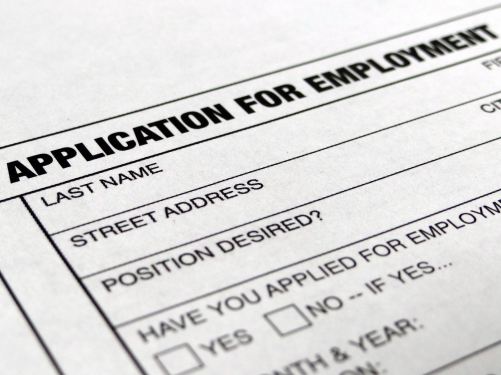9 Phases of Getting Laid Off

One minute I’m wearing the badge of full-time employment and a snazzy job title with the reassurance that those direct deposit checks will show up in my bank account every other Friday. Next, the dreaded news comes. For me, it happened midway through writing an article. Then I realized I didn’t have to finish it – and there I was, an unfinished story. And my resume suddenly needed updating.
Being unemployed in the South Coast ain’t easy. The job market is tough. We are living in New England, after all, not the warm south where the economy is booming. Even some of the area’s largest employers are slashing their ranks. Many folks have to cast their nets as far as Providence or Boston to find employment that will pay the bills.
My take on the journey of getting laid off:
- Disorientation – You wake up, confused—sort of like that first morning your baby sleeps through the night. You can’t quite place where you are or what you’re supposed to do. People ask where you work and you can no longer cling to your sound bite on how cool your job is. Instead, you have to rewrite your answer so you have enough dignity to get through the day.
- Un-Free time – The ultimate paradox of getting laid off: You have more free time, but it’s the stressful kind. You become OCD on the job sites, entering in every keyword under the sun, hoping for something to match up. Going on a walk, at first, is even hard – because it just doesn’t feel right to do anything until you get this all resolved.
- Unemployment office – You embark on that Kafka-esque journey of navigating the state unemployment office. For me, it was my first time. The backlog is insane, so clearly I’m not alone (The last digit of my Social Security # is 8, so they’ll only take my call on Thursday.)
- Resignation – You give in. First it’s one House of Cards show then it’s the whole season. You can feel Frank Underwood reprimanding you for still being in your PJs at 10am. And is that a bowl of ice cream? “I couldn’t possibly comment.”
- Products? – You start poking around your house. Using that exfoliating foot scrub tucked deep into the bathroom closet. Experimenting with eye shadow. One day, you are alarmed to find your hair looking perfect. A good hair day and you won’t even be at the office?
- Productive? – You are ahead on your laundry. You pick up that Ken Follett novel collecting dust on your nightstand. Will the universe implode?
- Reaching out – You offer yourself to volunteer. Make lunch dates. Write cards to old friends—the snail mail variety. Suddenly you feel human. You don’t need the sound bite anymore, you just need to be able to laugh and relate. So much of life has nothing to do with work, after all.
- Possibilities – After the morning cup of coffee, the ideas begin to cascade over you. An online course? Get a certification? Get more freelance assignments (luckily still had those)? It’s overwhelming, but it’s a start.
- It’s going to be okay – It’s like bungee jumping. You think you are going to hit the ground hard but instead you find yourself floating in air, somehow safe. In our independence-obsessed culture, it’s nice to find that when you’re struggling or stuck in a snowbank for the third time in a week, your friends step up and your loved ones still believe in you. That’s a hell of a better narrative—even when I had a regular paycheck.
Epilogue: After a couple of months I did manage to find a job! But I still feel solidarity with those who have gotten laid off. Remember: At the end of the day, you are still you and you are still awesome.
